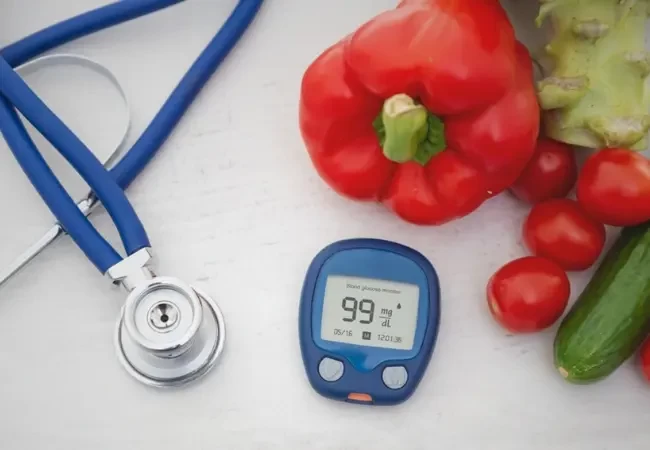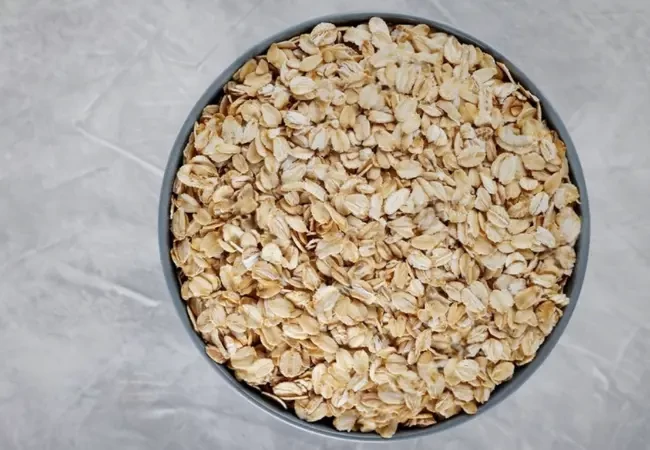Blog
Eat Smart
Stay Balanced

When Should Diabetics Eat? Expert Tips on Meal Timing and Blood Sugar Control
 Medically reviewed by: Dr. Tom Babu, Consultant Diabetologist & Endocrinologist - Written by Riya Yacob - Updated on 20/05/2025
Medically reviewed by: Dr. Tom Babu, Consultant Diabetologist & Endocrinologist - Written by Riya Yacob - Updated on 20/05/2025You have to keep in mind that diabetes management is more than just about what you eat, it is also about when you eat. For diabetic patients, especially those who take insulin, meal timing plays an important role in maintaining stable blood sugar levels. Irregular eating patterns can lead to spikes or drops in glucose, making daily life more challenging. In this blog, we will discuss some practical tips on meal timing, including the benefits of time-restricted eating and how to plan meals effectively to keep blood sugar in check.
Time-Restricted Eating for Diabetes
The level of blood sugar in the body can be regulated by eating at consistent times throughout the day. Skipping meals or eating at irregular intervals can cause blood sugar to fluctuate. There is also a possibility that this will lead to hyperglycemia (high blood sugar) or hypoglycemia (low blood sugar).
For those on insulin or other glucose-lowering medications, it is crucial to maintain a regular eating schedule. This can prevent dangerous drops in blood sugar. Consistent meal timing also helps in better digestion and energy levels throughout the day.
Diabetes Meal Planning
Traditional meal patterns of three large meals a day may not be ideal for diabetics. Instead, consuming smaller, more frequent meals can help maintain steady blood sugar levels. Some of the key practices include:
- Reducing breakfast portion size
Reducing breakfast size helps prevent sudden spikes in blood sugar levels. The chances for blood sugar levels to spike are very common in the morning due to the body’s natural hormonal changes. A lighter meal allows better glucose control and sets a balanced tone for the rest of the day. In order to prevent blood sugar spikes in the morning, make sure that you have a lighter breakfast.
- Include mid-morning snacks
A healthy snack between breakfast and lunch can prevent hypoglycemia, especially if lunch is delayed. Mid-time snacks help maintain stable blood sugar levels and prevent extreme hunger, which can lead to overeating during the next meal.
- Choosing light lunches
Lunch should be balanced and moderate in order to keep energy levels high throughout the afternoon.
- Including mid-afternoon snacks
These can help maintain energy and prevent overeating at dinner. By spacing out meals and snacks every 3 to 4 hours, diabetic patients can keep their blood sugar levels more stable throughout the day. But make sure you are choosing healthy snack options.
- Early Dinners
Having dinner early, that is within an hour after sunset, can benefit blood sugar control. Late-night meals may lead to higher blood sugar levels overnight, as the body's insulin sensitivity decreases in the evening.
Eating earlier allows for better glucose regulation overnight. The body can process food more efficiently earlier in the evening. Avoiding heavy meals close to bedtime can lead to more restful sleep.
For those on insulin therapy, it's crucial to monitor blood sugar levels before bedtime and consider a light snack if necessary to prevent nocturnal hypoglycemia.
Time-Restricted Eating for Diabetes
Time-restricted eating (TRE) involves consuming all meals within a specific time window each day, such as 8-10 hours, and fasting for the remaining hours. This approach can help improve insulin sensitivity and aid in weight management.
Limiting eating hours can lead to more stable glucose levels. TRE may assist in reducing body weight, which is beneficial for diabetes management. Fasting periods can decrease inflammatory markers associated with chronic diseases.
When to Eat to Control Blood Sugar Levels
Effective meal planning is vital for managing diabetes. The following tips will help you plan your meals in a more efficient manner:
● Use the plate method
Half of your plate should be filled with non-starchy vegetables, one quarter should be filled with lean protein, and the last quarter should be filled with whole grains or starchy vegetables.
● Monitor carbohydrate intake
Keep track of the types and amounts of carbs you consume to maintain blood sugar levels.
● Stay hydrated
Keep your body hydrated throughout the day in order to support your overall health.
● Prepare meals ahead of time
The more in advance you plan and prepare your meals, the easier it will be for you to stick to your eating schedule.
● Limit processed foods
Choose whole, unprocessed foods to reduce added sugars and unhealthy fats.
By incorporating these strategies into your daily routine, you can better manage your diabetes and improve your overall well-being.
Expert Care at Silverline Hospital
Managing diabetes effectively requires the best approach, including proper meal timing and planning. At Silverline Hospital, our dedicated team of healthcare professionals, including endocrinologists and dietitians, specialize in providing personalized nutrition and dietary care.
With the help of our Senior Consultant in Nutrition and Dietetics, it is easily possible to create a well-planned diet that promotes healthy eating habits, ensures right nutrition, and supports the well-being of the patient. Silverline Hospital can help you address your concerns and lead a healthier life.

More Blogs
-

Oats Are Also Carbohydrates: Here's Why Protein-Based Foods Are the Better Choice
Think oats are healthy carbs? Discover why protein-based foods are a smarter choice for sustained energy and balanced nutrition.
-

How Vaccines Help Protect Diabetics From Infections
Discover how vaccines protect diabetics from infections by boosting immunity and preventing serious complications.
-

Vaccinations for Diabetics: Flu, Pneumococcal, Tdap & More Explained by Experts
Stay protected with the right vaccines. In this expert-led guide, learn why flu, pneumococcal, Tdap, and other vaccines are essential for people with diabetes.
-

Struggling with Erection or Early Ejaculation? Here's How to Get Help
Struggling with erectile dysfunction or premature ejaculation? Learn common causes, treatments, and how to seek professional help with confidence.


 Home
Home  Booking
Booking
 Chat Now
Chat Now  Call Us
Call Us